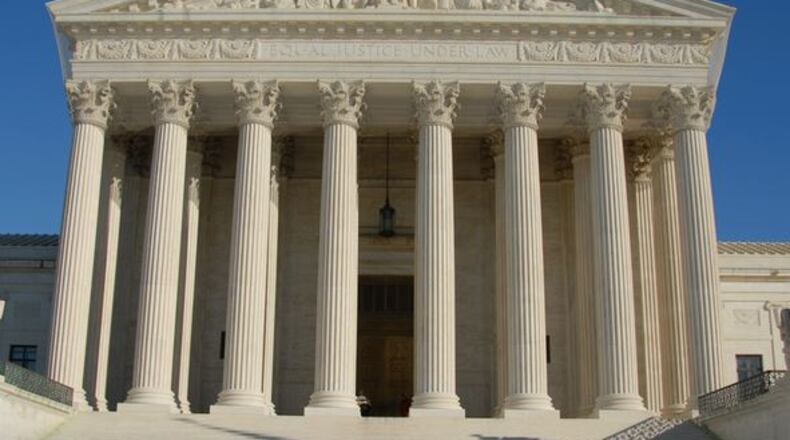"This is a program put in place by a government agency - it is not something the Congress put in place - which is important, because now the agency says it can get rid of the program," said Nicole Saharsky, a lawyer who worked on one of the three DACA cases before the Justices.
"It seemed to me the government had such an easy argument," Saharsky said at a Georgetown University symposium earlier this fall. "This is discretionary - we're going to exercise our discretion and not have it anymore."
But Saharsky and other legal experts say the way the Trump Administration went about ending the program undermined its authority to easily make a change.
On Tuesday, the Supreme Court will hear a suite of cases that challenge whether the Trump Administration, in its decision to cancel daca, acted in an “arbitrary and capricious” way. @JonathanBlitzer previews. https://t.co/xCui2z2Z3x
— Michael Luo (@michaelluo) November 10, 2019
For example, it took the Trump Administration months to produce policy points from the Secretary of Homeland Security - used in a later court case before the D.C. Circuit Court of Appeals - to support the reason why the DACA program should be changed.
"Part of the debate is about whether those additional policy reasons are properly before the court or not," said Irv Gornstein, the Executive Director of the Supreme Court Institute and a Visiting Professor at Georgetown University Law Center.
That 'after-the-fact-justification' - as Gornstein labeled it during a Supreme Court preview this fall - is one of a series of administrative matters the Justices must consider, in what otherwise would seem to be a legal slam dunk for the Trump Administration.
When lower courts first blocked the feds from changing DACA, law professor Josh Blackman called it "ludicrous," denouncing a decision from a federal judge in San Francisco as an 'amateur act of punditry.'
But as the issue has wound its way through the courts, Blackman has joined others in acknowledging the Trump Administration fell short in offering the proper rationale for the change.
This article confirms what I've long suggested: the Trump Administration refused to rely on policy rationales to justify the DACA rescission. As a result, DOJ has been handcuffed, and could only meaningfully rely on determination that DACA was unlawful. https://t.co/LTtJtkKDhb https://t.co/8WeVUPhfY1
— Josh Blackman (@JoshMBlackman) November 11, 2019
"Offer other reasons that are legitimate, and the policy can be rescinded," Blackman argued in a lengthy argument on Twitter earlier this year.
The outcome of this case could also find roots in the Supreme Court rebuke of the Trump Administration over the Census, where Chief Justice John Roberts clearly laid out a path for the feds to take without violating the Administrative Procedures Act - which could apply as well to the DACA situation.
All of that will play out in 80 minutes of arguments - covering three different cases before the Supreme Court on Tuesday.
About the Author
